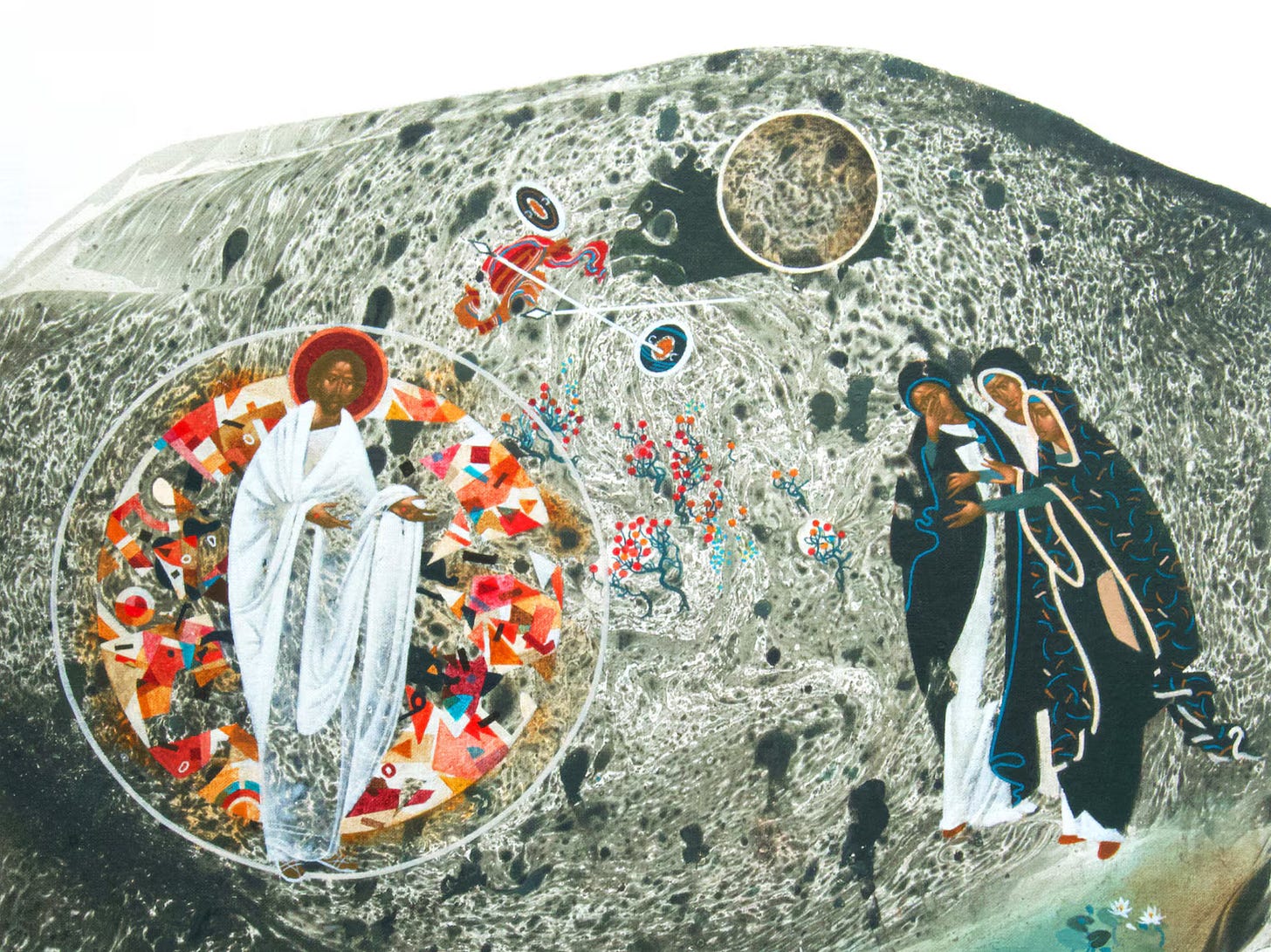First Words of the Risen Christ
He is risen!
It struck me this Easter Sunday how I haven’t paid much attention to the first words of the risen Lord Jesus. There are many great resources, books, and sermons on the last words of Jesus on the cross, but little on his first words when he became the firstborn from the dead. So, let’s meditate on the first sayings of Christ on the day he rose from the dead. Each one brings us needed encouragement and exhortation.
“Greetings!” (Matt 28:9)
As the two Marys head to the tomb of Jesus, they see the stone has been rolled back. An angel declares, “He is not here. He’s risen just as he said!” So they head to tell the rest of the disciples—and they see Jesus. He says, “Greetings!” I love this from Jesus. “Hi!” How amazing it would have been—and is—to hear him greet us.
This “Hello!” from the Lord Jesus is packed with emotion. The word Jesus uses, chaírō, carries the idea of a pronouncement and infusion of joy: “Be full of joy!” “Rejoice!” “Be gla…




